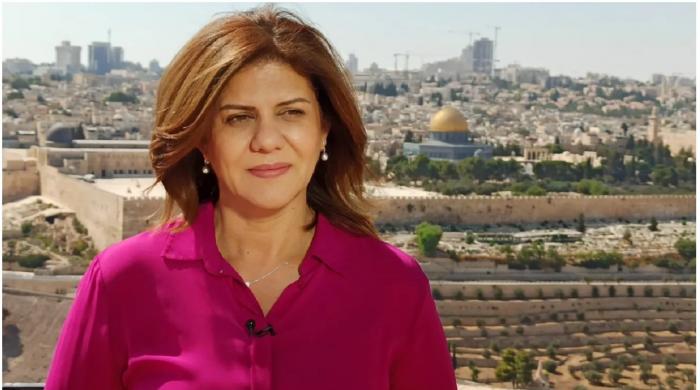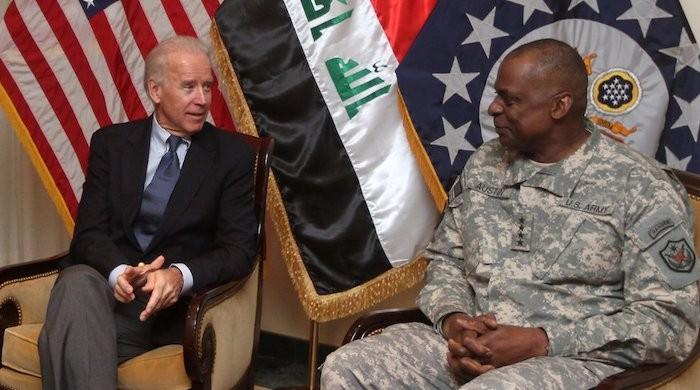The geostrategic implications of COVID-19
The million-dollar question is, will the COVID-19 fuel the US-China geostrategic competition?
April 27, 2020

The most common prediction about COVID-19’s geostrategic implication is the rising competition between the US and China.
Global orders have a tendency to change gradually at first, and then all at once. The gradual de-seating of the US by China had already started. The million-dollar question is, will the COVID-19 fuel the US-China geostrategic competition?
Ideally speaking pandemics should result in global cooperation, however, the virus that gripped China’s Wuhan, and spread globally, may exacerbate preexisting tensions between the two protagonists of the world.
The economies of both the US and China will suffer unprecedented setbacks. The strategies to bounce back at the expense of each other will not only be mutually hurting, but may have global repercussions. China may choose to go back on its commitments to the US and of internal economic liberalisation and reforms.
In fact, President Xi Jinping will resort to strengthening the one party rule. Beijing has much to make up. It has to allocate more resources to state-owned enterprises. It will also have to shift more resources to mend the public health system.
China will do everything to overcome its existing and possible economic decline in the future and will, thus, not hesitate to exploit free market vulnerabilities. The US and Europe are both in a state of disarray, as their political systems do not give the kind of leverage China has for a comeback.
The question will be of United States’ global position, once the health crisis is over. President Xi, China’s most influential leader since Mao, even before the COVID-19 pandemic, had made it his priority to expand the country’s economic and military might around the word. The COVID-19 has provided him the opportunity to accelerate the pace of his ambition.
Despite the doubt cast over China’s role in the spread of the virus, the fact remains that countries that ignored Chinese counsel to deploy Beijing’s playbook to fighting the outbreak, especially its strict lockdown, have suffered immeasurably. The Chinese are in so many words saying to the world that the homework the Chinese people wrote with their blood and sweat, is right in front of your very eyes, and you can copy it.
China is gradually but surely emerging as the country that has not only survived COVID-19 but may be a global saviour. On the other hand, the US appears to be facing a crisis of leadership, let alone coming up with a global bail out strategy. It seems to be completely incapable of handling the crisis at home.
The US is in the news for all the wrong reasons. The latest being the Trump administration slashing the US contribution to the World Health Organisation (WHO).
In fact, the United States has lost opportunity after opportunity to appear as a state in control of the situation, or for that matter giving the world a sense of direction. It has said almost nothing about international cooperation to fight the spread. In fact, it is seeking aid and assistance.
To add insult to injury the world witnessed American governors squabbling with President Trump, over the management of the crisis. Jude Blanchette, who holds the Freedom Chair in China Studies at the Center for Strategic and International Studies, said, “we are bungling this in a fairly open and transparent manner”, and more importantly, “Beijing’s push for global leadership is able to get so much tail wind by virtue of the relative absence of any US leadership.”
However, it is not simply just the US bungling. China is working towards moving into this vacuum and its global outreach efforts are commendable.
Beijing to-date has helped no fewer than 89 countries, fighting the coronavirus. Chinese scientists have won international praise for hitting several key milestones in arresting and understanding the virus. As early as January 2020, a team led by Yong Zhen Zhang of the Shanghai Public Health Clinical Center and School of Public Health, published the initial viral genome on two open access sites. Moreover, Chinese doctors and scientists reported the first description of the new disease in the Lancets Medical Journal.
The saviour narrative is endorsed by the fact that Chinese researchers and medical practitioners are emerging as leaders in the global scientific world, by publishing in open-access sites evidence on case management, genomics and various areas of public health and epidemiology, which has been of vital use globally.
The crisis has also exposed the global dependence on Chinese medical supplies. Three hundred of the world’s top five hundred companies have facilities in the high-tech manufacturing hub of Hubei, where the outbreak began.
Also read: A breakdown of COVID-19 cases in Pakistan by mode of transmission
Almost three quarters of all anticoagulant drugs imported by Italy come from China; half of all the antibiotics imported by Germany, Italy and France also come from China. The global supply chain needs to be valued. China seems to be in a position to restore them.
“Rethinking China” is going to be more positive than negative.
The US and UK may blame and badmouth China, but the fact remains, the rest of the world is looking towards China for help. China has also positioned itself as the head of the global response to COVID-19, which may alter global power relations.
The post-Coronavirus world will naturally tilt towards soft power paradigm. China appears to be leading; its private and public sectors are filling in gaps in equipment where other states are failing. The government and Jack Ma, a Chinese billionaire and co-founder of the Alibaba group, have sent doctors and medical supplies to France, Spain, Italy, Belgium, Iran and Iraq, the Philippines, Pakistan, India and United States.
It was China that stepped up first to help Italy and dispatched masks, ventilators and 300 intensive care doctors to support overwhelmed hospitals in the country. The Jack Ma Foundation has also sent 20,000 testing kits, 1,000,000 masks and 1,000 protective suits and face shields to all countries of Africa. The projection of state power beyond its borders was the domain of US and the West. That role is fast changing.
The world is now witness to China’s ability to handle the crises at home without being in a rush to open up to prevent economic slowdown and hunger. It was also successful in providing much needed medical aid to the world, in glaring contrast to the Western nations struggling to survive it.
More importantly, with the Belt and Road framework in mind, China is strengthening its commitment to Globalization 2.0. President Xi in mid-March, mentioned to Mr. Giuseppe Conte, Italy’s prime minister, that Beijing is willing to contribute to a “health silk road” (Jiankang Sichou Zhilu).
According to Xinhua News Agency, which is China’s official state-run press agency, the Health Silk Road includes mutual medical aid between China and Italy to “battle the COVID-19 together”, as well as any activity that might support China’s vision of “a new approach for perfecting global public health governance.”
Jiankang Sichou Zhilu already existed since at least 2017 as President Xi first used the term during a visit to Geneva in January 2017, where he signed a memorandum of understanding with WHO, committing to the construction of a “Health Silk Road” that would aim to improve public health in countries along China’s Belt and Road. This pandemic may become a milestone to speed up the launch.
It is still too early to gauge China’s performance in context of improving global health, however, there is no reason to be skeptical that it will be revolutionary and the United States has not done itself any favours with its own pandemic response.
The Western global order dominated the world for seventy years, by successfully battling the tide of communism and the military might of Soviet Union. However, the post COVID-19 world seems to be different, where hard power, ideological and religious divides and the capitalist exclusive economic models may become irrelevant.
The world may be looking at decisive and strategic leadership that takes more pride in investing in human well-being and the survival of this planet as its stated objective, where health and decent livelihoods and climate are more important than power and arms.
If China does not fit the bill, nor does the West. China for now is poised better, but it really wants to create an impression that it is different from the West, which ruled the world first through their military might and later international monetary institutions; it now must come up with a plan which is pro-people and will sell.
No harm in dreaming.
Baqai is the Associate Dean (Faculty of Business Administration) and an Associate Professor (Social Science and Liberal Arts) at the Institute of Business Administration in Karachi.











